The Relationship Between Science and Religion in Antiquity
Exploring the historical dynamics and interactions between scientific thought and religious beliefs in ancient civilizations reveals a complex tapestry of intellectual exchange and cultural influence. In antiquity, the relationship between science and religion was not simply one of conflict or opposition, but rather a nuanced interplay of ideas and beliefs that shaped the worldview of ancient societies.
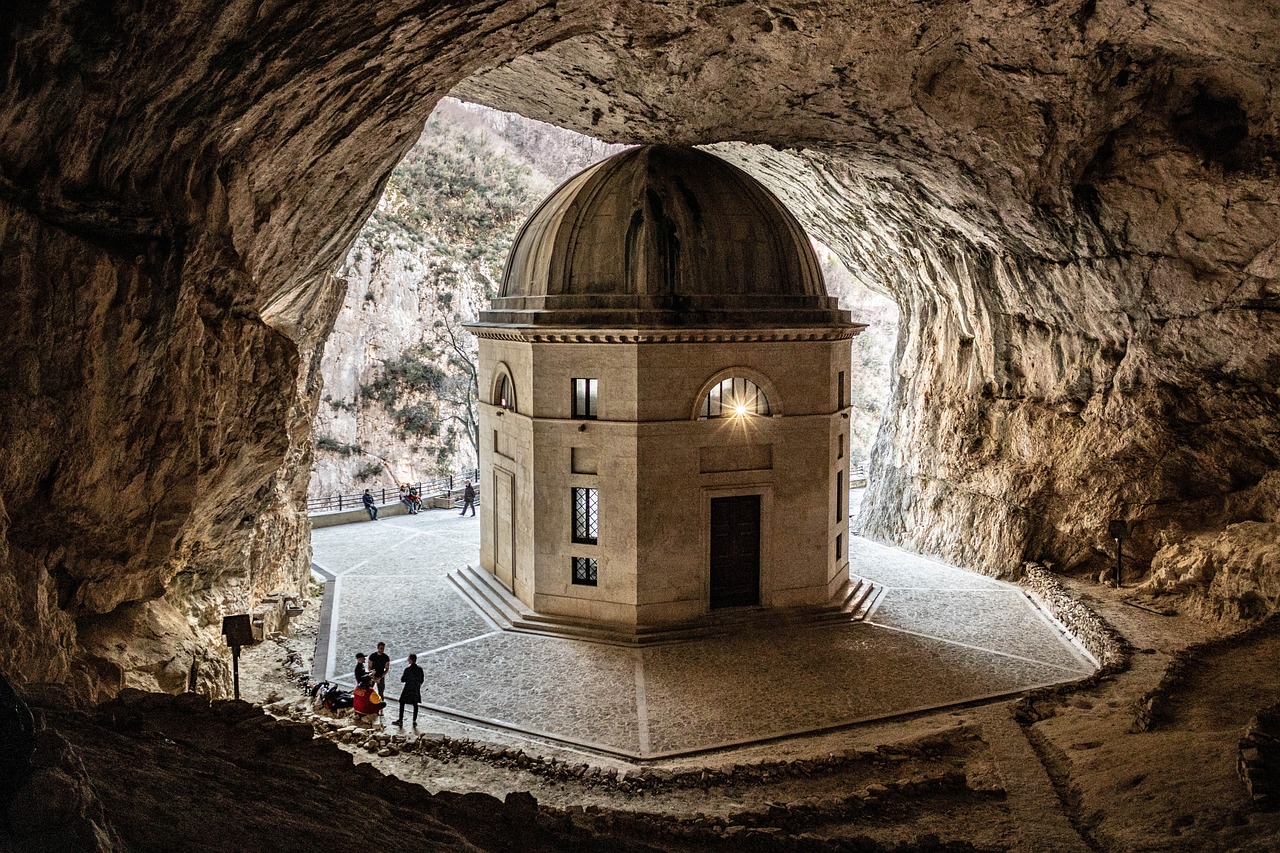
Ancient Views on the Natural World
Ancient civilizations viewed the natural world through a lens that blended awe, mystery, and reverence. In the absence of modern scientific explanations, phenomena such as thunderstorms, earthquakes, and the changing seasons were often attributed to the whims of gods and goddesses. The ancient Greeks, for example, believed that natural events were manifestations of divine actions, with deities like Zeus controlling the weather and Poseidon ruling the seas. Similarly, Egyptian cosmology centered around the cyclical patterns of the Nile River, symbolizing the eternal cycle of life, death, and rebirth.
Moreover, many ancient societies saw the natural world as interconnected with the spiritual realm, where every tree, river, and mountain held symbolic significance. The concept of animism, the belief that objects in nature possess souls or spirits, was prevalent in cultures across the globe. This holistic view of the environment shaped how ancient peoples interacted with their surroundings, fostering a deep sense of harmony and balance between humanity and the natural world.
While ancient views on the natural world may seem simplistic or superstitious by modern standards, they reflect a profound respect for the mysteries of existence and the interconnectedness of all living beings. By exploring the ways in which ancient civilizations perceived and interpreted natural phenomena, we gain valuable insights into the origins of scientific inquiry and the enduring influence of religious beliefs on human understanding.
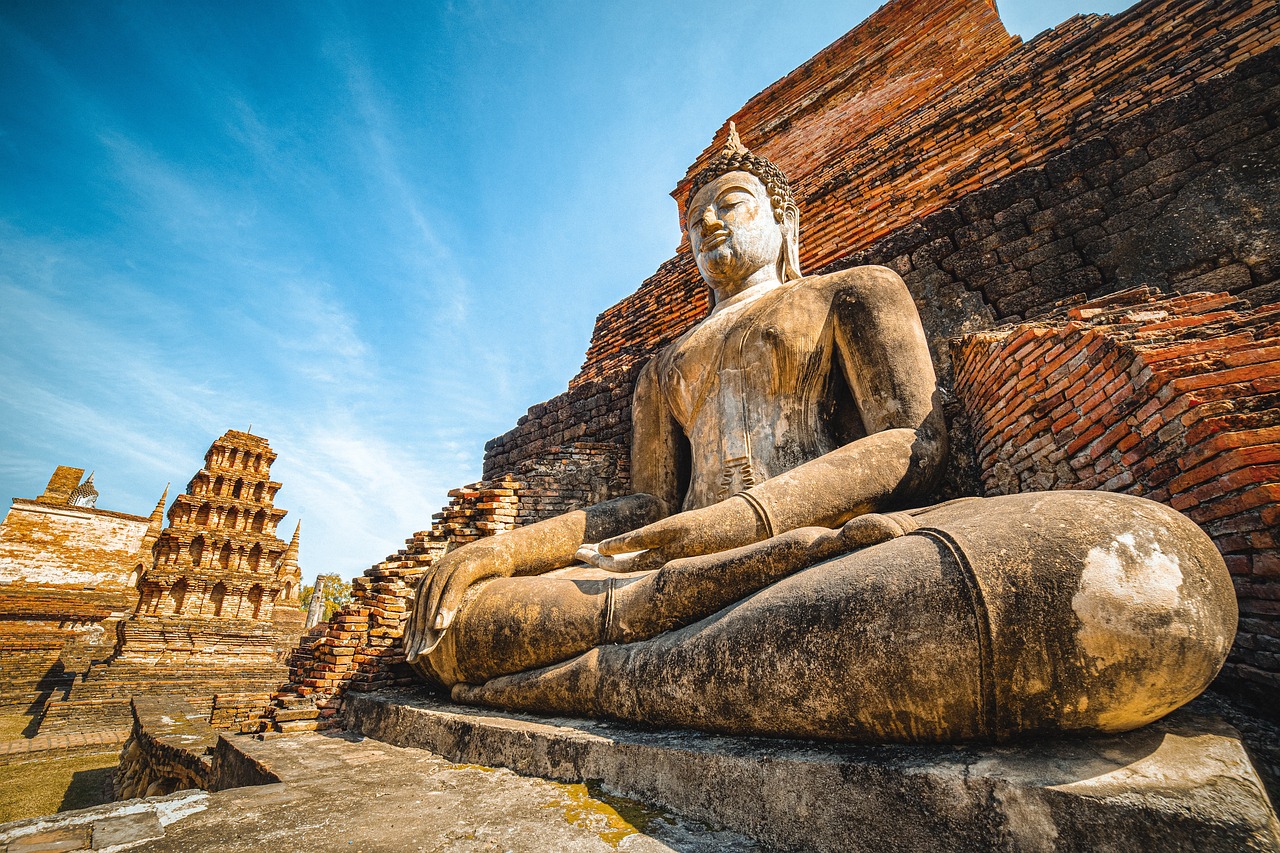
Philosophical Debates on the Origin of the Universe
Philosophical debates on the origin of the universe in antiquity were characterized by a rich tapestry of ideas and beliefs that sought to explain the fundamental question of how the cosmos came into being. From the ancient Greeks to the Indian subcontinent, thinkers grappled with cosmogony, the study of the origins of the universe, through a lens that combined elements of philosophy, mythology, and religious cosmologies.
One of the central themes in these debates was the concept of a primordial substance or principle from which all existence emerged. For example, the Greek philosopher Thales posited that water was the fundamental element from which everything else arose, while Anaximenes believed it was air. These early cosmogonies reflected an attempt to rationalize the natural world through a philosophical framework that intertwined with religious beliefs.
Similarly, in ancient Indian philosophy, the concept of Brahman as the ultimate reality and source of all existence played a central role in discussions on the origin of the universe. The Upanishads, ancient texts that explore the nature of reality and the self, delved into metaphysical inquiries that intersected with religious doctrines and early scientific speculations.
Moreover, the philosophical debates on the origin of the universe often overlapped with religious creation myths, such as the Babylonian Enuma Elish or the Egyptian creation stories. These myths provided narrative frameworks for understanding the cosmos and humanity's place within it, blending theological narratives with cosmological explanations.
Overall, the philosophical debates on the origin of the universe in antiquity reflected a complex interplay between reason, faith, and imagination, shaping the intellectual landscape of ancient civilizations and laying the groundwork for future inquiries into the nature of existence.
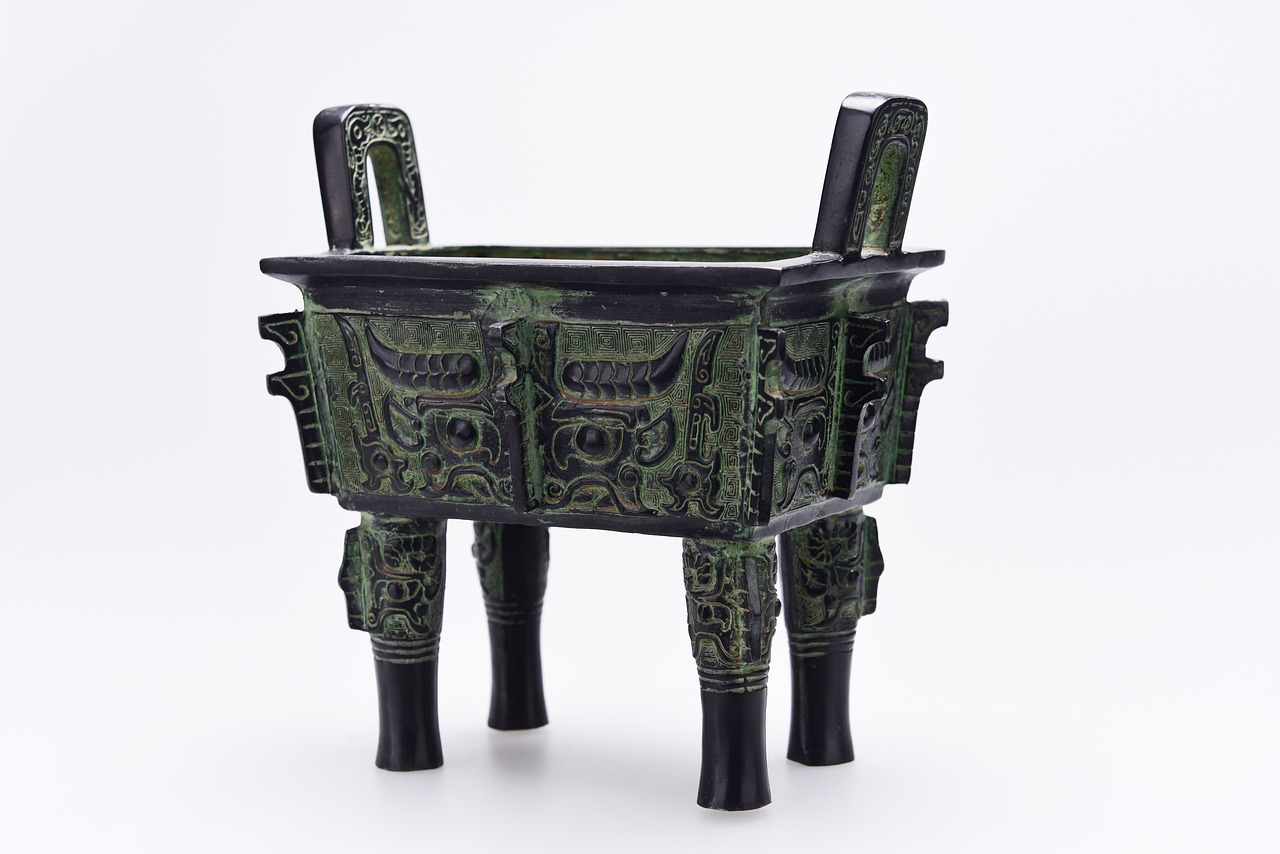
The Role of Mythology in Ancient Science
The role of mythology in ancient science was profound, shaping the way early civilizations understood the natural world and its phenomena. In ancient times, mythology served as a framework through which people interpreted and explained various scientific observations. Mythological narratives often provided explanations for natural phenomena that were not yet understood, such as the movements of celestial bodies, the changing of seasons, and the origins of life.
Myths were not merely stories for entertainment; they were deeply intertwined with religious beliefs and scientific endeavors. Ancient cultures believed that myths held truths about the world and the cosmos, offering insights into the mysteries of existence. Mythological figures and tales were often used to personify natural forces and phenomena, bridging the gap between the seen and unseen realms.
Moreover, mythology played a crucial role in inspiring curiosity and exploration in ancient science. Mythical stories of gods and heroes embarking on epic quests or possessing supernatural powers fueled the imaginations of early scholars and philosophers. These tales encouraged a sense of wonder and awe towards the natural world, prompting individuals to seek deeper understanding and knowledge.
By studying the myths of their cultures, ancient scientists and philosophers gained valuable insights into the beliefs and worldviews of their societies. Mythology provided a rich tapestry of symbols, allegories, and metaphors that could be interpreted in various ways, offering different perspectives on the relationship between humanity, nature, and the divine.

Ancient Scholars and Their Contributions
Ancient civilizations were home to remarkable scholars whose contributions laid the foundation for both scientific inquiry and philosophical discourse. These scholars, often polymaths of their time, delved into various fields such as astronomy, mathematics, and medicine, blending their intellectual pursuits with religious beliefs that permeated every aspect of society.
One such prominent figure is Aristotle, whose works encompassed a wide range of subjects from biology to ethics. His emphasis on empirical observation and logical reasoning influenced generations of thinkers and set the stage for the development of early scientific methodology. Despite his profound impact on scientific thought, Aristotle's ideas were also intertwined with metaphysical concepts rooted in religious beliefs.
Another influential scholar, Euclid, made significant contributions to the field of mathematics with his groundbreaking work on geometry. Known for his systematic approach and rigorous proofs, Euclid's geometric principles not only advanced mathematical knowledge but also reflected the harmony and order he perceived in the universe—a reflection of the prevailing religious worldview of his time.
On the medical front, the ancient physician Hippocrates revolutionized the practice of medicine by shifting the focus from supernatural causes to natural explanations for diseases. His emphasis on observation, diagnosis, and ethical treatment formed the basis of modern medical ethics and laid the groundwork for evidence-based medicine. Despite challenging prevailing religious beliefs about illness and healing, Hippocrates's approach resonated with the quest for understanding the natural world.
These ancient scholars navigated the complex interplay between scientific inquiry and religious beliefs, often drawing inspiration from both realms to advance human knowledge. Their contributions not only shaped the intellectual landscape of their time but also left a lasting legacy that continues to influence modern discourse on the relationship between science and religion.
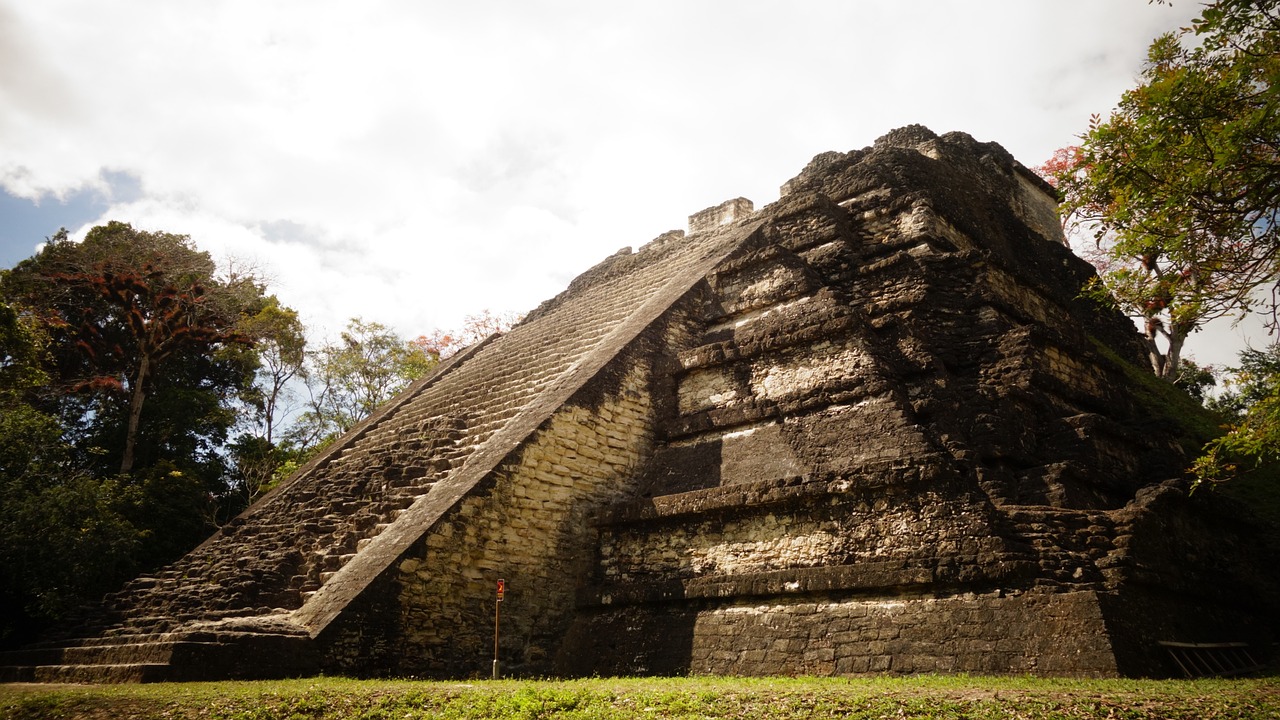
The Influence of Religious Institutions on Scientific Inquiry
Religious institutions in antiquity held significant sway over the trajectory of scientific inquiry, acting as both patrons and gatekeepers of knowledge. The relationship between religion and science was complex, with religious authorities often dictating the boundaries of acceptable exploration. While some religious institutions supported scientific endeavors that aligned with their beliefs, others viewed certain inquiries as heretical and actively suppressed them.
One example of the influence of religious institutions on scientific inquiry can be seen in the case of Galileo Galilei, whose astronomical observations clashed with the geocentric model endorsed by the Catholic Church. Despite his groundbreaking discoveries, Galileo faced persecution and censure from religious authorities, highlighting the power dynamics at play between religion and science during that era.
Moreover, religious institutions often controlled access to resources such as libraries, laboratories, and funding, which were essential for conducting scientific research. This control allowed religious authorities to shape the direction of scientific inquiry by promoting studies that supported their doctrines while discouraging or prohibiting investigations that challenged established beliefs.
However, it is essential to note that not all religious institutions were antagonistic towards scientific progress. Some monasteries, for instance, served as centers of learning and preservation of knowledge, fostering scientific inquiry within the confines of religious teachings. These institutions played a crucial role in the transmission of ancient scientific texts and the development of new ideas.

Alchemy and Mysticism in Ancient Cultures
Alchemy and mysticism played significant roles in ancient cultures, intertwining with religious beliefs and early scientific pursuits. In civilizations such as ancient Egypt, Mesopotamia, and Greece, alchemy was not merely about transmuting base metals into gold but also about spiritual transformation and the pursuit of hidden knowledge. Mysticism, on the other hand, delved into esoteric practices and the exploration of the mystical aspects of existence.
Within alchemy, practitioners sought to uncover the secrets of the universe through a combination of scientific experimentation and spiritual introspection. They believed that by understanding the properties of matter and energy, they could unlock the mysteries of creation and achieve enlightenment. The quest for the philosopher's stone, a legendary substance capable of granting immortality and wisdom, was a central tenet of alchemical practices.
Mysticism, on the other hand, focused on personal spiritual experiences and the attainment of higher states of consciousness. Mystics believed in direct communion with the divine and the exploration of the inner realms of the mind and spirit. Through practices such as meditation, ritual, and contemplation, mystics sought to transcend the limitations of the material world and connect with the divine essence of the universe.
These ancient practices were deeply intertwined with religious beliefs, as alchemists and mystics often viewed their pursuits as a means of understanding the divine order of the cosmos. The symbolic language of alchemy, with its references to elements, planets, and spiritual transformation, mirrored the allegorical narratives found in religious texts and mythologies.
While alchemy and mysticism were not always explicitly endorsed by religious institutions, they nonetheless played a significant role in shaping the cultural and intellectual landscape of ancient societies. The pursuit of hidden knowledge, the exploration of the unknown, and the quest for spiritual enlightenment were central themes that resonated across different civilizations and time periods.
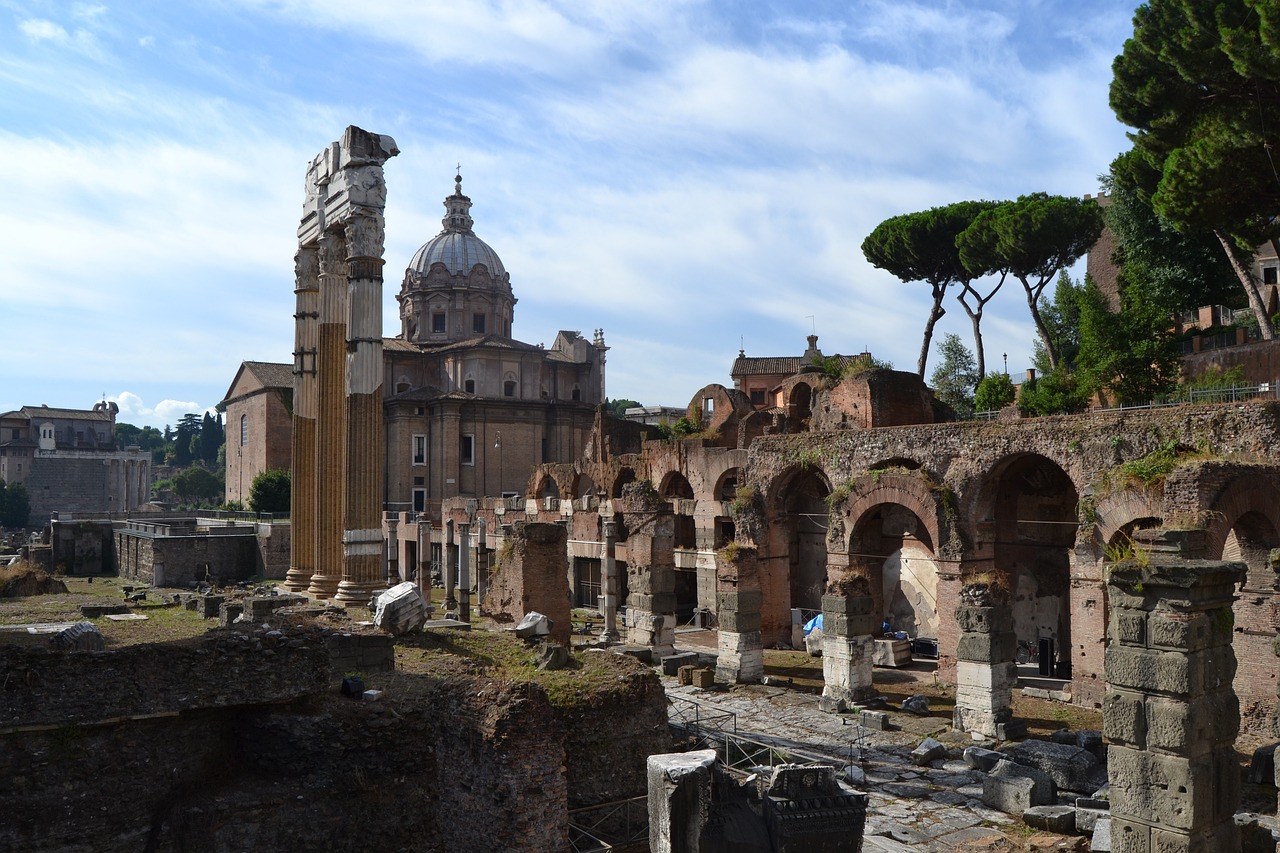
The Search for Meaning and Purpose
When delving into the annals of ancient history, one cannot ignore the profound quest for meaning and purpose that permeated the minds of thinkers and philosophers. In the tumultuous sea of existential questions about the nature of reality, the human condition, and the divine, ancient societies sought solace in the realms of both science and religion. It was a time when the boundaries between the empirical and the metaphysical blurred, giving rise to a rich tapestry of beliefs and inquiries.
Imagine ancient scholars gazing up at the star-studded sky, pondering the mysteries of existence and their place within the cosmic order. Their search for meaning was not merely an intellectual exercise but a profound spiritual journey, guided by the flickering flames of curiosity and reverence. In their pursuit, they navigated the intricate labyrinth of myth, legend, and empirical observation, seeking to unravel the enigma of human existence.
Alchemy and mysticism, with their tantalizing promises of hidden knowledge and esoteric truths, beckoned to those who sought a deeper understanding of the universe. These ancient practices, shrouded in mystery and symbolism, intertwined with religious beliefs and early scientific endeavors, offering glimpses into the interconnectedness of the material and the spiritual realms.
As ancient cultures grappled with the eternal questions that have haunted humanity since time immemorial, the search for meaning and purpose became a cornerstone of intellectual and spiritual inquiry. Science and religion, often perceived as opposing forces, converged in the shared pursuit of unlocking the secrets of the cosmos and deciphering the mysteries of human existence.

Legacy of Ancient Thought on Modern Discourse
The legacy of ancient thought on modern discourse is profound and far-reaching, shaping the ongoing dialogue between science and religion in contemporary society. The intellectual heritage left by ancient civilizations continues to influence how we approach questions of existence, knowledge, and the relationship between the material and the spiritual.
Ancient perspectives on the interplay between science and religion serve as a foundation for current debates, providing insights into the complexities of reconciling empirical evidence with faith-based beliefs. The enduring relevance of ancient ideas underscores the enduring human quest for understanding and meaning in a complex and ever-changing world.
By examining the historical interactions between scientific inquiry and religious traditions in antiquity, we gain valuable insights into the origins of modern thought and the development of diverse worldviews. The intellectual ferment of ancient times laid the groundwork for the diverse approaches to knowledge that characterize contemporary discourse.
Moreover, the enduring influence of ancient thought on modern discourse highlights the ongoing tension between empirical observation and metaphysical speculation, between rational inquiry and intuitive wisdom. The rich tapestry of ideas woven by ancient thinkers continues to shape how we grapple with the fundamental questions that define our existence.
As we navigate the complex terrain of science and religion in the modern world, we are continually reminded of the enduring legacy of ancient thought. The insights and debates of the past continue to inform and inspire contemporary discussions, challenging us to engage with the complexities of the human experience in new and enlightening ways.
Frequently Asked Questions
- What were the main beliefs of ancient societies regarding the natural world?
Ancient societies often viewed natural phenomena through a lens of religious beliefs, attributing natural events to the actions of gods or other supernatural forces. These interpretations shaped their understanding of the world and influenced early scientific thought.
- How did ancient philosophers discuss the origins of the universe?
Ancient philosophers engaged in debates about the creation of the universe, exploring ideas that intersected with religious cosmologies and early scientific theories. These discussions laid the foundation for future inquiries into the nature of existence.
- What was the relationship between mythology and early scientific endeavors?
Mythological narratives often played a significant role in shaping early scientific pursuits, as ancient scholars sought to reconcile mythic stories with observable natural phenomena. This interplay between myth, religion, and science influenced the development of knowledge in antiquity.
- How did religious institutions impact scientific exploration in antiquity?
The influence of religious institutions on scientific inquiry varied in antiquity, with some institutions supporting and fostering scientific innovation while others imposed restrictions that hindered progress. This complex relationship had lasting effects on the trajectory of scientific thought.
- What is the significance of alchemy and mysticism in ancient cultures?
Alchemy and mysticism held a prominent place in the spiritual practices of ancient societies, blending elements of religion, philosophy, and proto-science. These traditions provided unique insights into the nature of reality and the human quest for understanding.
- How have ancient perspectives on science and religion influenced modern discourse?
The legacy of ancient thought continues to shape contemporary debates on the relationship between science and religion, with ongoing discussions reflecting the enduring impact of historical perspectives. Understanding these ancient dynamics can provide valuable insights into current intellectual dialogues.



















